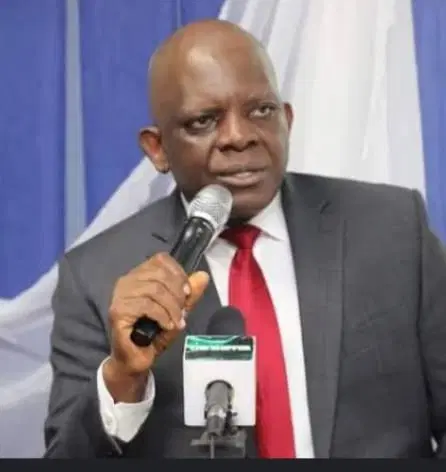
The Nigerian Shippers’ Council on Sunday said that it saved the nation’s economy over N40 billion in the last one year.
Speaking at a media parley to mark his one year in office, Executive Secretary of the Council, Barr. Pius Akutah, said the $40billion was saved from reasonable charter fee.
Akutah also said that the agency is targeting to ensure that investments in the maritime sector grow to $10 billion in the next five years.
He, however disclosed that the economy would have been worse-off if that money was not saved in the economy.
Akutah attributed the council’s success to a digital app introduced eight months ago, which streamlined and automated the calculation of freight and charter fees, enhancing transparency and efficiency. He expressed gratitude to the NSC management team for their role in achieving these savings.
“This was achieved because of an app that we have introduced in the last eight or nine months, which has actually helped us to automate the system for calculation of the reasonableness of freight, charter fees, and all that.
“I also want to thank the Compliance Unit. With the work that you have done in the last one year, we have also saved this country N6 billion, which would have gone into legal fees and would have caused more damage to the economy by way of orders that will ground some ships and ground some of the activities in the sector that would lead to huge economic loss.
“We have not only saved about six billion of that money, we have also improved the quality of trade by a singular act of resolving those conflicts in an Alternative Dispute Resolution (ADR) manner,” he explained.
Looking forward, the Executive Secretary informed that NSC has set an ambitious goal to drive $10 billion in maritime sector investments over the next five years. Akutah stated that this target aligns with the council’s new five-year plan, which centers on trade facilitation and boosting the role of the NSC as a Port Economic Regulator.
“Our five-year program will focus on activities that foster trade and expand maritime investments to over $10bn,” he explained, noting that talks with supportive stakeholders are already underway.
“We are having a new five-year programme that will project our activities in the next five years, that will focus majorly on what we will be doing as a Port Economic Regulator.
“In terms of facilitating trade and ensuring that business investments in this sector grow to a maximum of over $10 billion in the next five years. We have already started talking to some stakeholders who are on the same page with us,” Akutah stated.
Akutah also pointed to logistics as a significant hurdle for Nigeria’s full participation in the African Continental Free Trade Agreement (AfCFTA), which has a collective GDP of $3.4 trillion. He emphasized the importance of improving connectivity and intermodal transport within the African region to facilitate seamless movement of goods.
“If Nigeria does not enhance connectivity, how will goods move within Africa?” he questioned, underscoring the need for an efficient intermodal system to support AfCFTA goals.
“The implementation of the AfCFTA, if we don’t act very fast, would be the issue of maritime logistics, because you will see that right now connectivity within the African region is a major challenge,” he said.
He queried how goods would move within Africa, if Nigeria did not promote connectivity and the intermodal system of transportation to be able to move goods freely.
“Granted that we have boosted our manufacturing sector and we have goods that are manufactured from Nigeria, we have done everything within the ambit of that law to be able to export,” he said.















